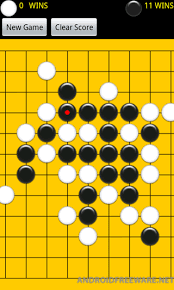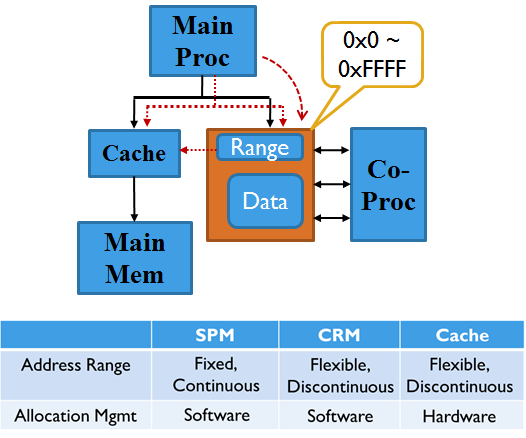
Yes, you read it correctly. It’s a rare combination of AI (Artificial Intelligence) and HW (Hardware) design skills, that is in want.
There is a national and an international competition that is scheduled around October, on FPGA designs that can play the “Connect-6” game. The connect-6 game is a variation of “Five-in-a-Row” (or Omok as is called in Korea), and the trick is that you have to make a hardware in FPGA that can play the game in real-time. The timing constraint is 1 min, and you have to come up with the best solution within the min — otherwise you’ll forfeit your chance to make a move.
*Highlights of this competition
- First place winner of the national level will be given a very prestigious MKE-ministry award (지식경제부 장관상).
- National level winners will enter the international level.
- International level winners will be recognized with cash prizes during an international conference (FPT), and their design summary will be published in the conference proceedings.
More details can be found in the conference website.
Sounds interesting? Contact the lab. Don’t worry if you don’t have any knowledge/experience with AI or HW design — not expected (but you should be at least a junior majoring in ECE).
Some dynamic elements are added to the front page, which now shows a slideshow instead of a random picture. The slideshow controls are also provided (previous, next, and pause/resume). The previous and next buttons are easy to spot, but where is the pause/resume button?
The answer is the page number.

In a computer system employing on-chip accelerator processors such as streaming co-processor or reconfigurable hardware co-processor, it is vital to minimize communication overhead lest the communication overhead cancel out any performance improvement by the co-processor accelerator.
Our first cut approach to this problem, tailored to reconfigurable hardware co-processors that we’ve been working with, is an on-chip shared memory that is little more intelligent than just a scratch-pad memory but less so than a cache. We call it Configurable Range Memory (CRM). Here is an article introducing its basic ideas.
Application-specific hardware and reconfigurable processors can dramatically speed up compute-intensive kernels of applications, offloading the burden of main processor. To minimize the communication overhead in such a coprocessor approach, the two processors can share an on-chip memory, which may be considered by each processor as a scratchpad memory. However, this setup poses a significant challenge to the main processor, which now must manage data on the scratchpad explicitly, often resulting in superfluous data copy. This paper presents an enhancement to scratchpad, called Configurable Range Memory (CRM), that can reduce the need for explicit management and thus reduce data copy and promote data reuse on the shared memory. Our experimental results using benchmarks from DSP and multimedia applications demonstrate that our CRM architecture can significantly reduce the communication overhead compared to the architecture without shared memory, while not requiring explicit data management.
Read the full text via this.
As part of the 2012 International Conference on Field Programming Technology, there will be a design contest for the best/fastest Connect-6 game designs.
For more details see website: http://www.eecg.toronto.edu/~janders/FPT_2011_competition/ (it is for the previous year, but this year’s rules will be similar)
또 한 가지 중요한 정보는 이 국제 대회를 준비하기 위하여 국내 대회를 개최할 예정입니다. 국내에서 처음으로 개최되는 대회이고 아직 공식 발표된 것이 아니기 때문에 누구든지 지금부터라도 준비하면 괜찮은 결과를 얻을 수 있습니다. 또 처음 개최되는 대회라서 참여를 독려하기 위해 많은 상이 마련되어 있는 것으로 알고 있습니다. 관심 있는 학생은 문의바랍니다.
Here are some of Crawford’s tips for maximizing writing work habits:
- Create a routine
- Minimize distractions
- Controlled daydreaming
- Beware of empty praise or destructive criticism
- Open your avenues of opportunity
I agree that it’s more of a habit than of one’s ability or anything else.
via http://menwithpens.ca/efficient-writing-effective-work-habits/
This time, HiPEAC tries a new publication model. Instead of first publishing your paper in a conference, they do a journal review process for all submitted papers, and those accepted papers will have a chance to get presented in a conference, in addition to the journal publication. Our paper on nested loop compilation for reconfigurable architectures, was accepted for this journal issue. Congrats to those involved in this work!
Special high performance computing seminar by NVIDIA Korea
Friday (2011.11.25) 11:00 (EB1 E204).
1. 11:00~11:45 : GPU based render farm and Cloud computing trend
Speaker: JuSeok Lee
Bio:
- Sir Sales manager at NVIDIA Korea professional solution group
- Director of CSE(Korea Computational science and technology Society)
- 2004.Oct ~2007.Feb : sales at Intel Korea CISD, handheld business unit
- Graduated from Yonsei University, Physics department
2. 11:45~12:30 : CUDA, Parallel Programming with GPU without Tears
Speaker: Hyungon Ryu
Bio:
- Solution Architect at NVIDIA Korea Professional Solution Group
- 2009. Jan. ~ work for NVIDIA Korea
- 2006. Mar. ~ Dept. of Mathematics. Yonsei Univ. (PhD. Candidate)
I have been thinking of the implications of the possible “End of Moore’s Law”. Read a related article, Is Moore’s Party Over?, in Comm of ACM.
Whether the end of Moore’s law is near is a topic of active debate, so I don’t want to delve into that. But most people will agree that things are slowing down when it comes to computing.
If Moore’s law is over, will even the number of cores be flattened? What would that mean to computer scientists, engineers, programmers, students, and teachers? Where will big innovations be made if it’s not in exponential performance growth?
Hi ECE students at UNIST~
고성능 저전력 컴퓨팅 랩(Energy-Efficient Computing Lab)에서는 UNIST ECE 학부 2~3학년 학생들과 함께 다음 주제들에 대해 심도있게 공부해보고자 합니다. 뜻있는 학생들은 신청해주세요.
- assembly language (ARM)
- computer architecture (server/mobile)
- compiler
- virtual machine (Java, Dalvik)
- FPGA and reconfigurable computing
- other emerging computing technologies
CSE311 (Computer Organization) 과목을 못다 공부해서 미련이 남거나, 또는 미리 공부해보고 싶은 학생들도 환영입니다. 아니면 컴파일러나 Java Virtual Machine에 대해서 관심이 있는 학생들도 좋구요. 인턴쉽과 병행해도 되고 그와는 상관없이 그냥 부담없이 와도 됩니다.
Korean Student Aid Foundation grants “Love Dream Scholarship” to 8 excellent Vietnamese or Chinese graduate students selected by Korean Government from universities in Korea.
The scholarship awardees will receive maximum tuition fee according to each school.
Detailed information about the scholarship can be found here.

